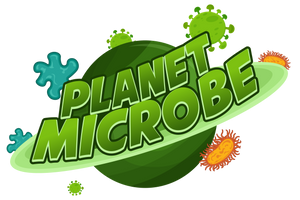RNA and its molecular cousin DNA are nucleic acids that carry the genetic code. RNA, or ribonucleic acid, acts as an intermediate messenger for genes, the unit of inheritance carried in DNA.
Within DNA the genetic code is a sequence of four chemical units - adenine, cytosine, guanine, and thymine - abbreviated A, C, G, and T. This code is transcribed into RNA and then translated into proteins. RNA is composed of four chemical units, A, C, G, and U for Uracil. In RNA the T is switched to U. These chemicals are strung together along a sugar-phosphate backbone, protruding out like leaves on a stem. RNA differs from DNA in its structure. RNA is typically a single strand in a cell, whereas DNA is always a double strand. Under special conditions double-stranded RNA can form.
Different types of RNA function in ways unlike DNA. DNA cannot leave the cell’s nucleus, so RNA goes out to do work throughout the cell. Messenger RNA, known as mRNA, is one of the most important types, encoding for the amino acid sequence needed to make proteins. Transfer RNA, or tRNA, recruits the proper amino acids needed to make a protein according to the sequence of the mRNA. In addition to protein synthesis, RNA also plays a role in the regulation of gene expression and as a catalyst in other biological processes. In a viral group called retroviruses, it is RNA and not DNA that carries the genetic code.
Over the past few years, messenger RNA has been in the limelight. It has played a starring role in vaccine technology helping to end the Covid-19 pandemic and save millions of lives. Two of the most widely used Covid vaccines use a synthetic version of mRNA to cause cells to produce a harmless coronavirus spike protein. This protein then stimulates the body to make antibodies that train your immune system to destroy the actual coronavirus if it attacks your body later.










